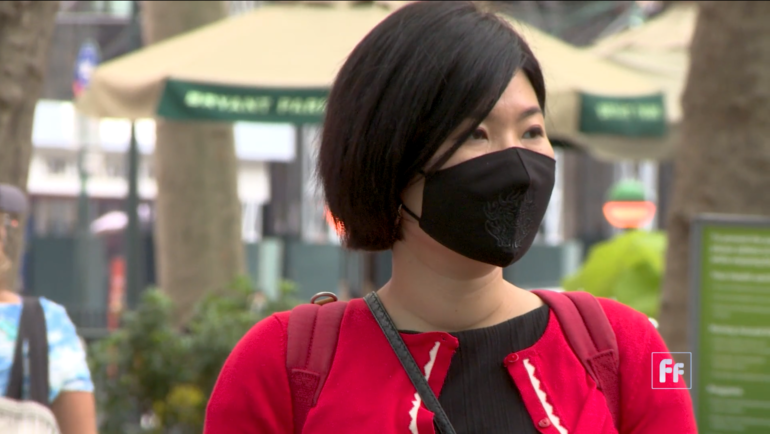The COVID-19 pandemic is sparking another epidemic: racism against people of Asian descent.
Stop AAPI Hate was formed in March in response to the rising incidents of racism and discrimination. As of early August, it received more than 2,500 reports from Asian Americans and Pacific Islanders across the United States.
In July, artist Kate Bae was punched in the face while walking to working to her studio in New York City.
“Sometimes it’s about being an Asian woman, but I think it’s generally just being an Asian,” Bae said. “Because they would always say, I am the coronavirus. I’m causing this pandemic.”
In July, Tara Bokum and her friends were picnicking outside when a man approached them and yelled, “Go back to your own country.”
She says racism is learned. As a kindergarten teacher, she observes first-hand that children will repeat what adults say. “They absorb it and they give it off, whether you want them to or not.”
Historian Erika Lee says race-based discrimination , particularly towards Asians, traces back hundreds of years to when Asians first arrived in America.
“One of the persistent myths or charges about immigration has been immigrants don’t assimilate. They bring crime. They bring disease,” Lee said. The novel coronavirus is “being seen as something that has is somehow some sort of genetic or biological to to Chinese people, to Chinese culture. “
What’s helped perpetuate the targeting of Asians has been certain terms, like “Chinese virus,” used by politicians and others.
“I have concerns that Asian-Americans are getting stereotyped, are getting targeted for reasons that have to do with more misinformation than real information,” said John C. Yang, president and executive director of Asian Americans Advancing Justice-AAJC, a civil rights organization based in Washington, D.C.
Yang’s organization offers bystander intervention training to teach people how to respond when they witness acts of racism. If someone feels safe, they can call out the racism, Yang said. Also, witnesses can get other people involved, as well as report the incident to authorities.
“What we need in this moment is having people be allies but also intervening,” Yang said.
Rita Pin Ahrens, former executive director of OCA-Asian Pacific American Advocates, says her organization has proposed and drafted some legislation to create a task force that looks at anti–Asian hate and would provide recommendations for how agencies could handle it.
“It is our job to watch what is happening, to note it so that we know what we have to address and correct. We can’t just let things slide. We can’t give up,” Pin Ahrens said.
 CGTN America
CGTN America Artist Kate Bae says she was punched in the face in New York City in July 2020.
Artist Kate Bae says she was punched in the face in New York City in July 2020.
